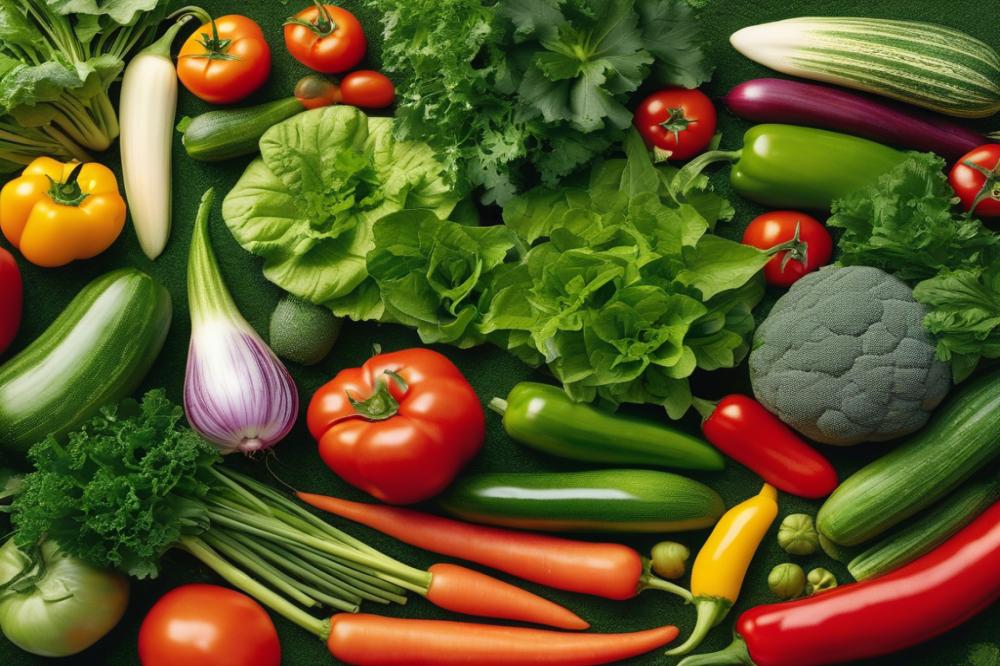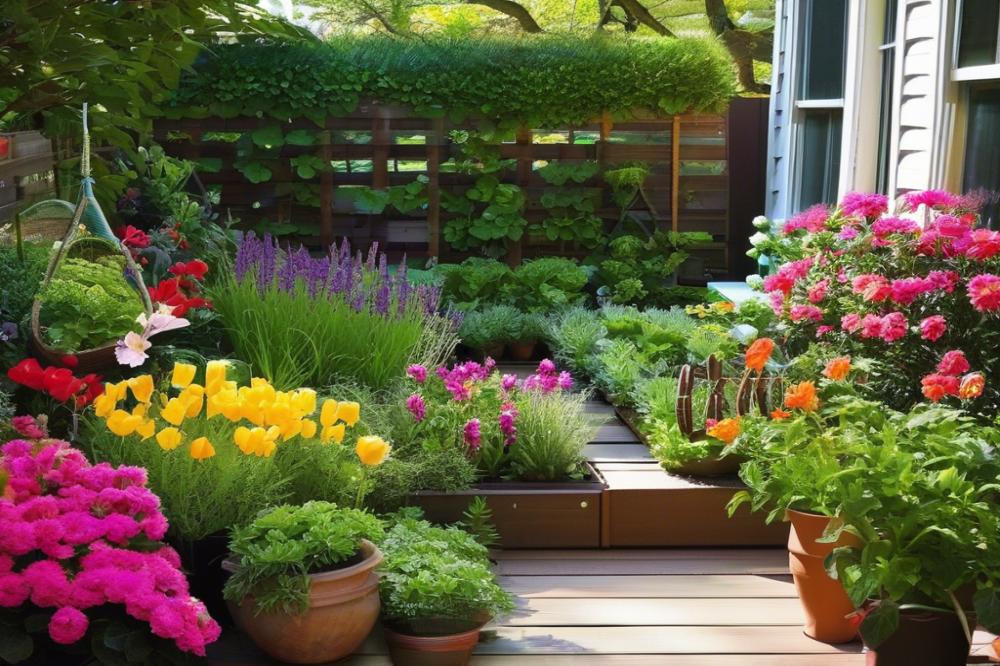Understanding Your Garden
Creating a vibrant vegetable garden can be rewarding, but it’s not without its challenges. garden problems can arise unexpectedly, causing frustration for even the most experienced gardeners. Identifying issues with pests, diseases, or soil can be the key to keeping plants healthy. With awareness and a little effort, most challenges can be handled before they damage your landscape.
Healthy plants yield better crops. When a garden is thriving, it doesn’t just benefit those who harvest the vegetables; it also supports local wildlife and promotes biodiversity. A flourishing ecosystem relies on proper plant growth. Addressing problems like watering issues, nutrient deficiency, or weeding can play a significant role in this process.
When faced with challenges, solutions like crop rotation and companion planting can make a big difference. These methods help manage pests naturally and enrich the soil. Employing organic remedies further promotes a balanced garden. While some obstacles may seem daunting, with the right tools and knowledge, your garden can flourish.
Being proactive will enhance your gardening experience. Keeping an eye on plant health and taking immediate action against threats creates a prosperous environment for growth. Each step taken results in a better harvest and contributes to a healthier planet.
Identifying Common Pests
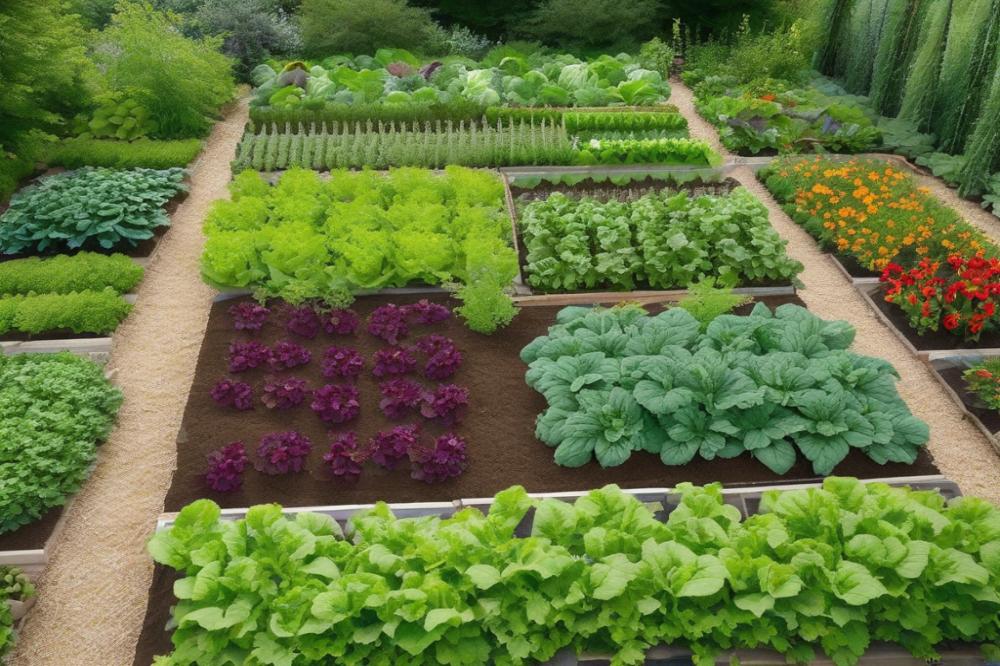

Pests can quickly turn a thriving vegetable garden into a troubled one. Aphids are tiny insects that suck juice from plant leaves. They leave behind a sticky residue, often attracting ants. Caterpillars, on the other hand, munch on the leaves, creating holes that ruin plant growth. Look for droppings or frass on foliage; this is a sign of their presence. Beetles are another major concern. The Japanese beetle, for example, munches on flowers and leaves alike.
Recognizing early signs of pest infestations is critical. Yellowing leaves may indicate a problem. Wilting plants can suggest something is wrong below the surface as well. Regularly inspecting plants helps catch issues quickly. Remember, taking action early can save your harvest from significant damage.
Preventative measures can make a substantial difference. Simple practices, like weeding, can keep pests from finding a home in your garden. Healthy soil also plays a role. Soil issues can lead to weak plants that are more vulnerable. Nutrient deficiency can weaken defenses against pests. Regular crop rotation keeps the garden vibrant and disrupts the life cycles of pests.
Organic remedies are an excellent choice for controlling pest problems in your garden. Homemade sprays using soap or garlic can deter unwanted guests. Another option is introducing beneficial insects, like ladybugs, which feast on aphids. These natural allies promote a healthy ecosystem.
Companion planting acts as a natural shield. Some plants repel pests or attract beneficial insects. For example, marigolds can deter nematodes and other unwanted pests while improving soil health. Basil planted near tomatoes can enhance flavor and ward off certain insects. Embracing these methods can turn your garden into a safe haven for your plants.
Regular monitoring and a proactive approach help tackle any pest-related challenges. By integrating these strategies into your routine, you set the stage for a flourishing garden despite the inevitable challenges posed by pests. Your vegetables deserve a space where they can thrive.
Dealing with diseases
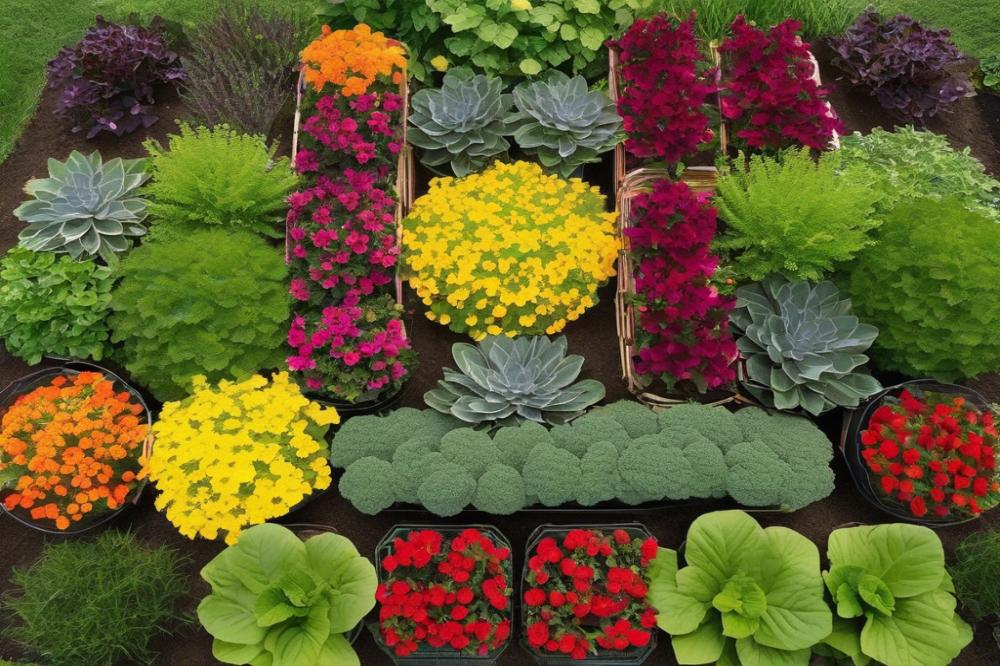

Every gardener faces the challenge of diseases affecting their plants. Fungal, bacterial, and viral infections can ruin plant growth and lead to disappointing harvests. Recognizing symptoms is key. Yellowing leaves, spots, and wilting are common signs of trouble.
Fungal diseases may show up as powdery mildew or root rot. These thrive in damp conditions, often due to overwatering. Bacterial infections appear as dark spots or wilting. They often spread through water droplets or tools. Viral infections, on the other hand, can cause mottling and distorted growth. These are tricky since they can spread rapidly from plant to plant.
What can be done when diseases strike? Start by removing any infected plants. Composting them is not a smart choice since it can spread pathogens. Instead, dispose of them in the trash. This helps reduce the chance of spreading diseases to healthy plants. Applying organic remedies like neem oil or garlic spray can offer some protection as well.
Preventative measures are critical in maintaining plant health. Crop rotation is one of the best practices. Changing the location of vegetables each season prevents the buildup of specific pests and diseases in the soil. Additionally, practicing good sanitation is vital. Clean all gardening tools after use and avoid working in the garden when plants are wet.
Regular weeding is another essential task. Weeds can harbor pests and diseases, which might attack your beloved vegetables. Keeping the garden tidy can help maintain a healthier environment. Also, companion planting can be used to create a natural defense against diseases. Certain plants can ward off harmful pests, reducing the need for chemicals.
Pest management is frequently intertwined with disease control. Keep an eye on tiny insects that can cause big problems. Aphids, for example, can transmit viruses to plants. If you notice pests, act quickly to limit their impact. Using insecticidal soap or introducing beneficial insects can be very effective.
Ensure your plants receive proper care. Addressing soil issues and nutrient deficiencies can help strengthen plants against disease. Healthy plants are generally more resistant to infections. Watering problems can also lead to weak growth, making plants more susceptible to diseases.
Ultimately, understanding and addressing these factors can go a long way. Whether dealing with pests, diseases, or nutritional needs, attending to each aspect of your garden will yield happier, healthier plants.
Addressing Soil Issues
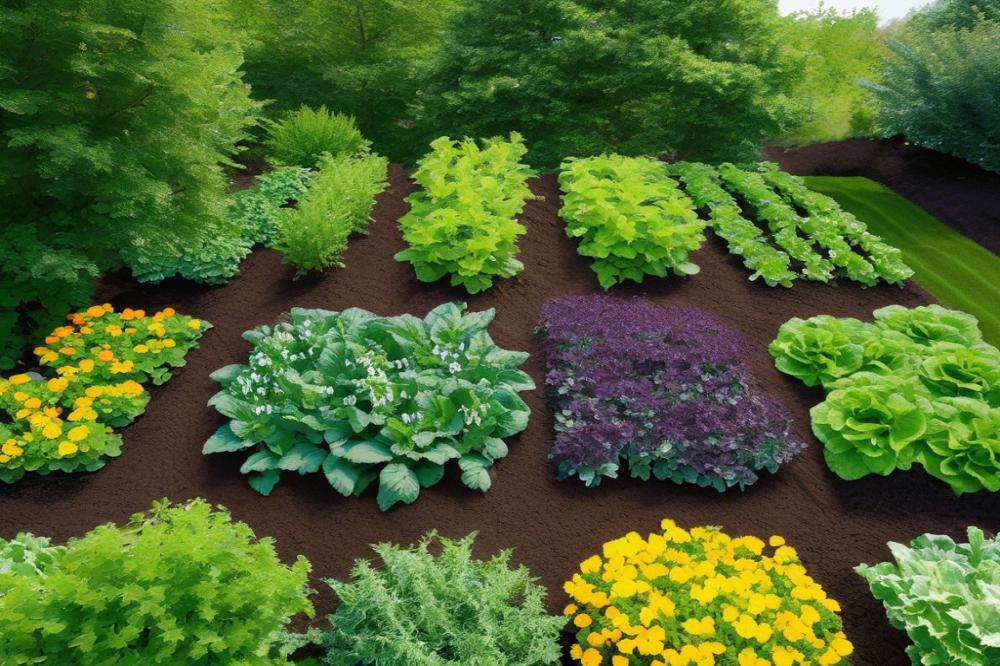

Soil quality plays a crucial role in determining the success of your vegetable garden. Healthy soil supports strong plant growth and provides essential nutrients. However, many gardeners face common soil problems that hinder their efforts. For instance, compaction can occur when soil is walked on frequently, which reduces the air pockets plants need. Poor drainage leads to water pooling around roots, causing diseases. Additionally, an imbalance in pH can prevent plants from absorbing nutrients efficiently. Understanding these issues is the first step toward a thriving garden.
Testing your soil is a smart starting point. Kits are available at garden centers and provide valuable information. They can reveal pH levels and nutrient content, guiding your next steps. If your results show imbalances, don’t fret. There are effective solutions. Organic amendments like lime or sulfur can adjust pH levels, making nutrients more accessible. Incorporating organic remedies boost soil health. Ingredients such as peat moss or aged manure improve structure and fertility. Avoid chemical solutions whenever possible; they can harm beneficial organisms.
Companion planting can also enhance soil quality while deterring pests. Some plants naturally repel undesirable bugs, thus safeguarding your vegetables. Rotating your crops each year diversifies nutrients drawn from the soil, reducing the risk of diseases specific to certain plants. Weeding is essential, too. Weeds compete for nutrients and water, so keeping them in check is vital for your vegetable bed’s overall health. Regular maintenance can save you trouble later.
Nutrient deficiency is a significant issue in many gardens. Symptoms may include yellowing leaves or stunted growth. Observant gardeners can often spot these signs early. If you believe deficiency is the problem, applying compost can work wonders. This natural fertilizer enriches soil and provides a slow release of nutrients. Watering problems can also stem from poor soil. If water drains too quickly, it may wash away nutrients, while too little drainage can drown roots. Finding a balance is key.
Addressing these soil issues not only enhances plant health but also promotes abundant harvests. Your garden can become a vibrant, productive space with a little effort and knowledge. By paying attention to soil quality, you lay the groundwork for success.
Managing Watering Problems
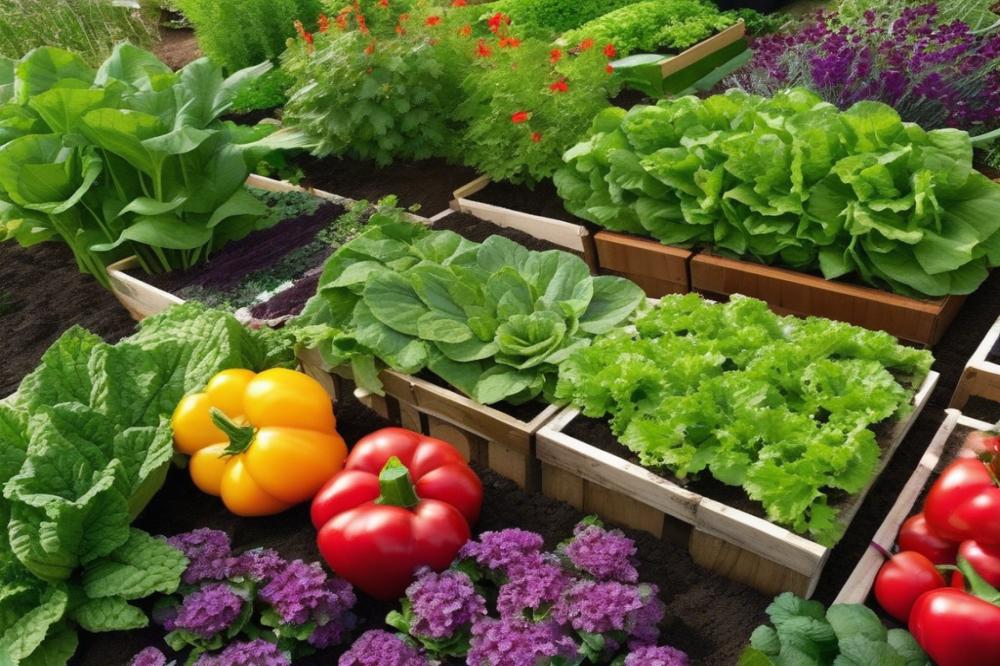

Watering issues can create real havoc in your garden. Overwatering can suffocate roots and create a breeding ground for pests and diseases. Yellowing leaves often indicate too much water. Plants may wilt, despite all that wetness, and start rotting at the roots. On the other hand, underwatering leads to stress and stunted plant growth. Dry soil and crispy leaves are signs that plants need a drink. Both situations can hinder your vegetable garden’s productivity.
Best Practices for Watering
Finding the right balance is vital. Water early in the morning to reduce evaporation. Focus on the base of the plants while avoiding wetting the leaves. Mulching can help maintain soil moisture. Consider drip irrigation for consistent watering. It’s efficient and targets roots directly, minimizing problems with pests and diseases. Keep an eye on the weather too. If rain is in the forecast, adjust your schedule. Each plant has different needs, so be aware of their requirements.
Climate and Plant Requirements
Climate plays a big role in how much you need to water. In hot, dry areas, plants can quickly dry out. Conversely, cooler, humid climates might lead to overwatering issues. Start by researching the plants you’re growing. Some need more water while others thrive with less. For instance, tomatoes often require regular moisture, while succulents need very little.
Consider also your soil health. Healthy soil retains moisture better and supports more robust plant roots. Nutrient deficiency can mimic the signs of watering problems too. Regularly testing your soil ensures it holds the right nutrients and moisture levels.
Other Effective Strategies
Incorporate practices like companion planting and crop rotation. These not only promote healthy growth but can also optimize your watering needs. Avoiding weeds is equally important. Weeds compete for water, nutrients, and light, making it harder for your vegetables to flourish. Using organic remedies can solve both pest and watering issues efficiently.
Recognizing Nutrient Deficiencies
Nutrient deficiencies can significantly affect plant growth in your garden. Key nutrients such as nitrogen, phosphorus, and potassium are essential for healthy crops. They play unique roles in the development of leaves, roots, and overall plant vigor. When plants lack these elements, specific signs become evident.
Nitrogen deficiency often shows as yellowing leaves, particularly the older ones. This yellowing process starts from the tip and moves towards the base. Conversely, phosphorus-deficient plants may exhibit dark, purplish hues and stunted growth. Potassium deficiencies can lead to browning leaf edges and weak stems. These symptoms are clear indicators that your plants may need extra support.
To assess soil nutrient levels, consider using a soil test kit. These kits provide detailed information about what your garden soil needs. You can purchase these tools at garden centers or online. Understanding soil issues will help you pinpoint exactly what is missing.
Once you identify a deficiency, remedies are available. Chemical fertilizers can quickly address the issue but may not be the best option for everyone. Organic remedies are a fantastic choice for those interested in sustainable gardening. Compost, for example, enriches the soil naturally and promotes healthy microbial activity. Well-rotted manure is another rich source of nutrients, especially nitrogen.
Besides fertilizers, think about other factors influencing plant health. Proper watering is crucial; over- or under-watering can mimic deficiency symptoms. Companion planting can also help by attracting beneficial insects that fight pests and diseases. Remember, weeding regularly prevents competition for nutrients.
Crop rotation can further assist in maintaining balanced nutrient levels over time. Different plants have varying nutrient needs and deplete the soil differently. By rotating crops, you can help restore soil nutrients and avoid long-term deficiencies.
Pay close attention to your vegetable plants. If they show signs of distress, investigate further. Taking proactive steps now will ensure a more vibrant and productive garden throughout the growing season.
Weeding Strategies
Weeds can cause major problems in your garden. They compete for nutrients, water, and sunlight, limiting the healthy growth of your vegetables. Some even attract pests and diseases. For these reasons, effective weeding strategies are essential.
One practical way to prevent weed growth is through mulching. A layer of organic mulch can suppress weeds while retaining moisture in the soil. Straw, wood chips, or grass clippings work well. Besides that, consider using ground cover plants. They fill bare spaces and shade the soil, making it hard for weeds to sprout.
Maintaining a regular weeding schedule is also important. Early removal of weeds stops them from going to seed. This simple act promotes healthier plants and better overall growth. Regular checks can help you spot any issues early, like soil problems or nutrient deficiencies.
Companion planting can also help with weeding. Certain plants naturally repel weeds while benefiting each other’s growth. Those who practice crop rotation find that changing plant placements each year reduces weed pressure. They disrupt weed growth cycles and lessen soil issues.
Organic remedies are a great option for controlling persistent weeds. Hand-pulling can be effective for smaller areas, but don’t forget about hoeing. This method allows you to sever weeds from their roots without disturbing the surrounding plants.
Combining these strategies makes for a dynamic approach to weeding. Consider integrating them into your gardening routine. These actions not only curb invasive species but also foster healthier plant growth.
Final Thoughts on Troubleshooting Your Garden
Addressing issues in your garden can feel overwhelming at times. Yet, understanding the common problems like pests, diseases, and environmental factors helps make things easier. Keeping an eye on your plants allows you to spot troubles before they escalate. Remember, prevention is always better than cure. Regular checks can protect your crops and lead to healthier growth.
Utilizing organic methods is essential for a thriving garden. Natural solutions can often resolve issues effectively without harming the environment. Whether it’s using ladybugs to combat pests or applying compost to nourish your soil, there are plenty of options. Each choice contributes to a sustainable approach that benefits both plants and gardeners alike.
Nurturing your garden requires patience and observation. Learning the specific needs of each plant can help you respond better to their challenges. Adjust watering practices based on weather conditions and check for signs of stress. A little extra care goes a long way in encouraging robust yields and beautiful produce.
In conclusion, embrace the journey of gardening. Every challenge offers a lesson and a chance to improve. With a proactive mindset and commitment to organic practices, you can achieve success. Your vegetable garden can flourish beautifully with time and dedication.

